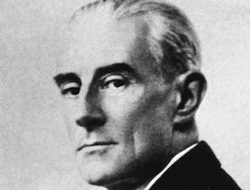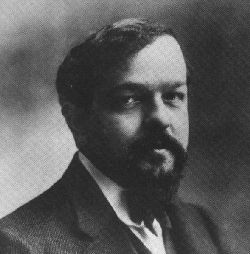Today’s picks were from the Debussy section, which meant there would be some Ravel as well. After actually learning both of these composers works, I am amazed at how easily they are grouped together when their music really is quite different. It is almost impossible to find one composer’s quartet without the other for instance, or discs of orchestral music.
All that was really picked by Celia today was a two-disc set by the Nash Ensemble of both composer’s chamber music (including one of my favorite pieces, the duo for violin and cello by Ravel), a disc containing each composer’s quartets (plus Fauré’s late piano trio) and a Herbert Von Karajan disc of orchestra music (leading the Orchestre de Paris). The recording of ‘La Valse’ on the Karajan disc is amazing. The Orchestre de Paris provides a sharper sound for Karajan then Berlin usually did during this time period, but Karajan brings a strong Austrian understanding of the waltz to the performance. Most people think of waltzes as oom-pah-pah background music, but for J. Strauss and the other composers of the Viennese waltz tradition the dance was actually quite racy. A friend once described it as ‘a vertical expression of a horizontal intention’. And Karajan conducts it in this way – with slight moments of holding back here and there, until the self-destruction that Ravel composed finally explodes. Because of the program associated with Ravel’s waltz (a nostalgia for the Europe that WW I destroyed) the tension and release here is one of self-destruction.
After listening to the Karajan recording I decided to grab the 4 disc set of Jean Martinon’s recordings of Debussy’s orchestra music and his 2 disc set of Ravel’s, both re-released on EMI discs. All these recordings also use the Orchestre de Paris and were originally releases as quadraphonic recordings. I would love to find a DVD release that takes advantage of this original recording, but in the meantime these stereo versions are well worth having. In fact – I think the Ravel recordings are the best ones out there. Martinon’s recordings share a deeper understanding of the composers themselves. While the Karajan is about Karajan doing what he does to Ravel and Debussy, the Martinon recordings let the composers themselves come through much more clearly. I’m looking forward to listening to these again tomorrow.



